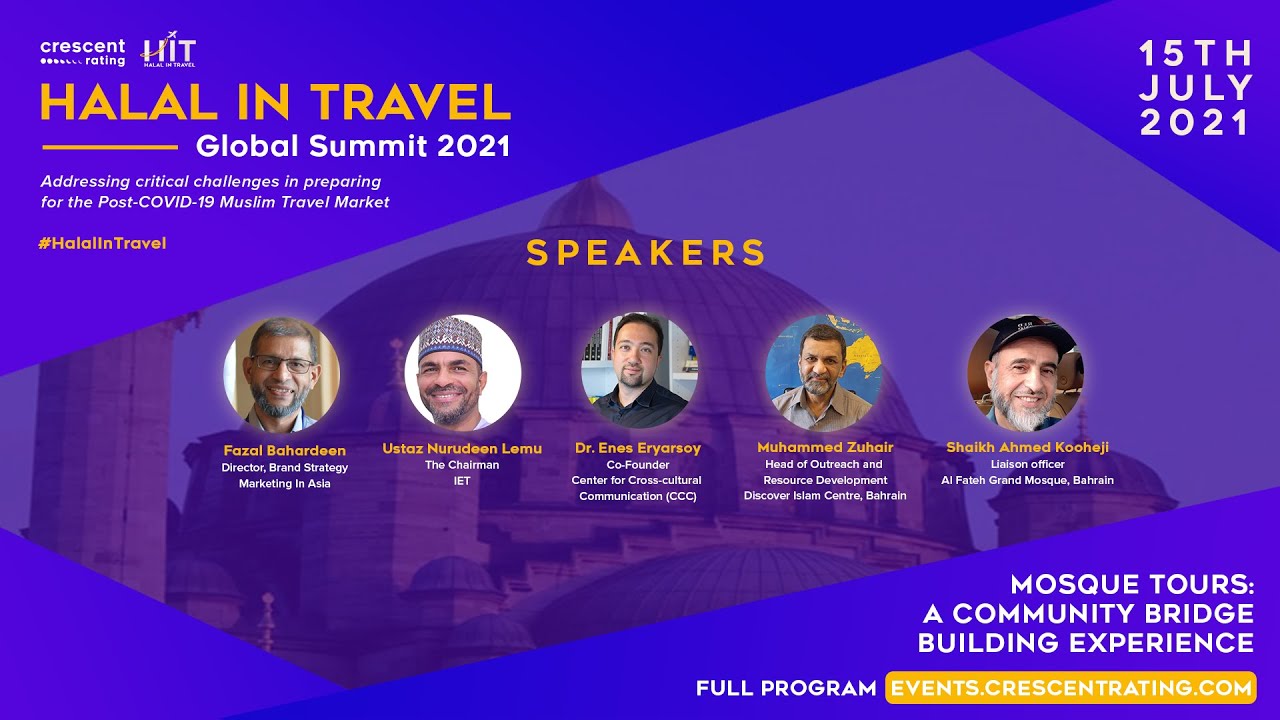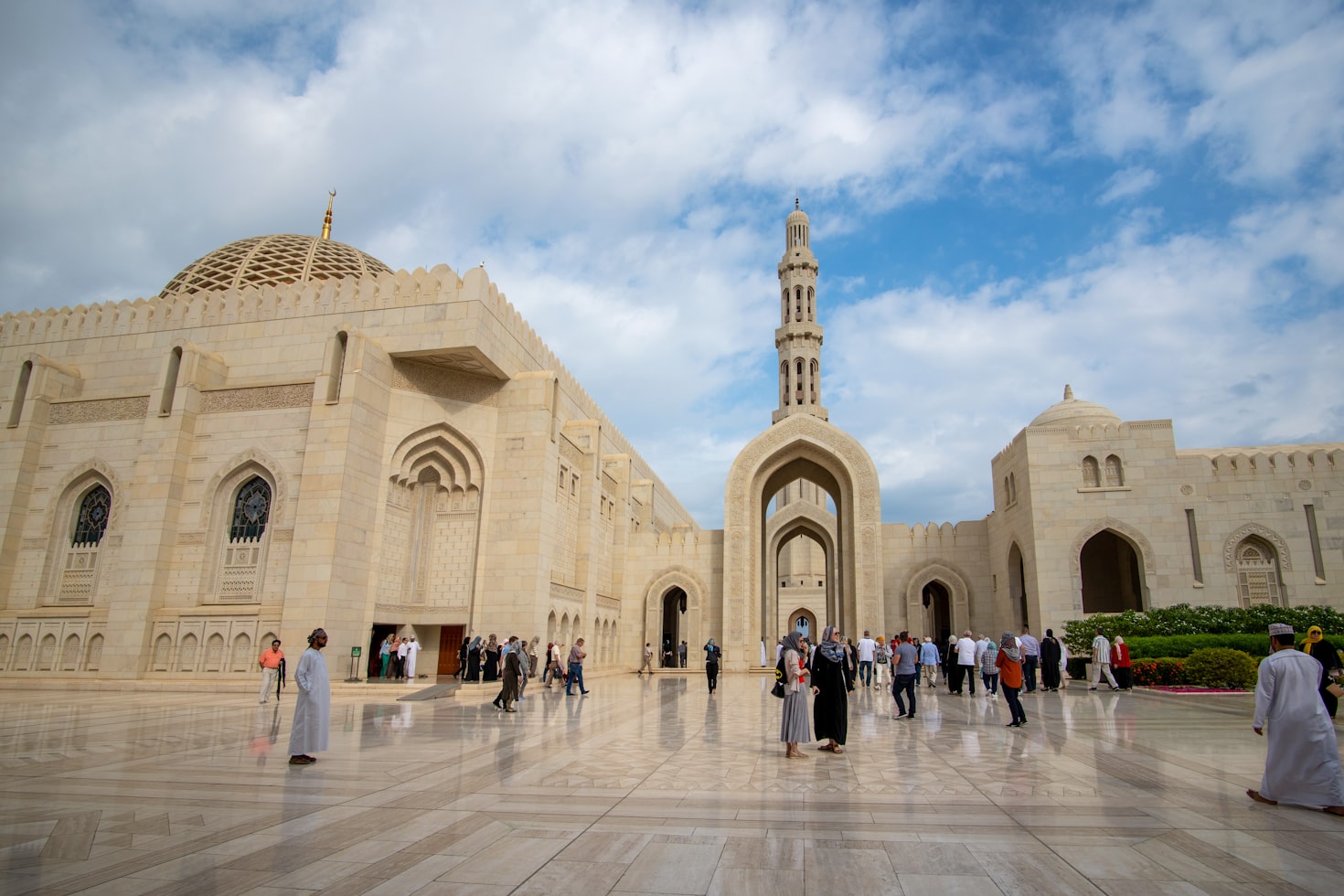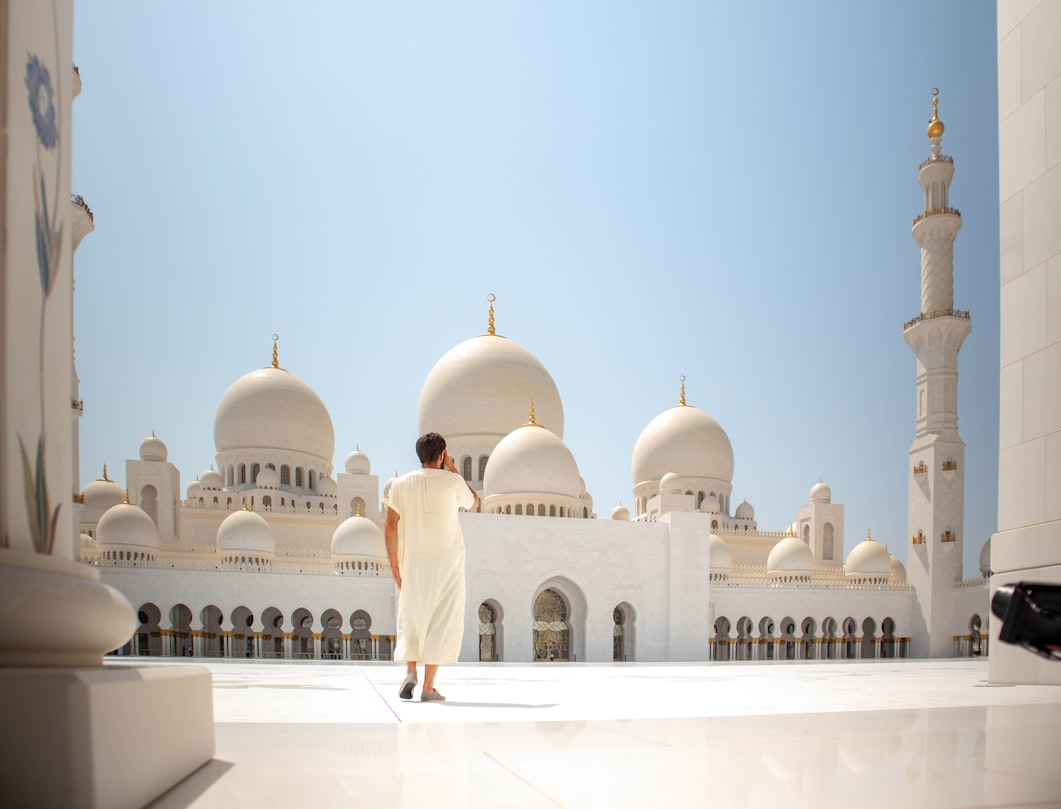
Before the COVID-19 virus spread globally and halted international travels, Mosque tours proved valuable in bridging diverse communities.
For the 2021 Halal in Travel Global Summit, CrescentRating hosted a conference highlighting the significance of Mosque tours in promoting Islam as a culture.
CrescentRating invited top tour guides and operators from various countries to share insights and experiences about Mosque tours in the virtual session titled Mosque Tours - A Community Bridge Building Experience, with our CEO Fazal Bahardeen as the moderator.
Our panelists included Ustaz Nurudeen Lemu, Chairman, IET & Director of Nigeria-based Lotus Capital Investment; Shaikh Ahmed Kooheji, liaison officer of the Al Fateh Grand Mosque in Bahrain; Dr. Enes Eryarsoy, Co-Founder of the Center for Cross-cultural Communication (CCC) in Turkey; and Zuhair Muhammed, head of Outreach and Resource Development of Discover Islam, Bahrain.

Mosques are often considered the heart of Islam. But over time, they slowly become more than just a place of worship for Muslims.
The historical, architectural, and cultural value of some of the most notable Mosques in the world drew significant attention from tourists, both Muslims and non-Muslims, ultimately opening doors to tons of opportunities for tourism stakeholders.
Mosque tours serve as avenues for tourists, particularly non-Muslims, to appreciate and learn about Islam.

Similar to other tourism activities, they enable guests to immerse in new experiences, making it a treasured and unforgettable moment.
“But for the Mosque, in particular, it allows people to go to places which they don’t usually see before, and they haven’t felt before - what it is like to be in another person’s sacred place,” Lemu pointed out.
A significant number of visitors engaged in Mosque tours happened to be non-Muslims, leading experts to agree how these activities helped tourists gain a deeper understanding of Islam both as a culture and a religion.
Mosque tours also generate cultural and educational opportunities that propagate a healthy and fruitful exchange of experiences and memories.

“Visits to Mosques help tourists become more enlightened, more exposed (to Islam). It allows them to grow in the richness of experiences. And hopefully not only it transforms but also becomes a paradigm shift that adds to their growth as human beings, able to be more appreciative to the diversity of humankind,” said Lemu.
Learning another culture up-close through activities such as Mosque tours promotes harmony and diversity as enlightened tourists would help eliminate, if not minimize, misconceptions about Islam.
While there are several rules to comply with when joining Mosque tours, guides and operators welcome guests regardless of their beliefs.

“We are not preaching to people in the Mosques. We respect all people’s beliefs because that’s our policy. What we’re doing in Mosque tours is to share valuable insights and educational information on what’s inside a Mosque,” Koheji said.
After all, the objective of Mosque tours is to provide the opportunity wherein people from all parts of the globe can genuinely learn about Islam.
With the COVID-19 pandemic gradually easing into an endemic, tourism players are eager to resume or start their Mosque tours. However, here are some handy tips and reminders our panelists shared during the conference.

Like most tourism activities, Mosque tours should be handled and supervised by professionals. Stakeholders should also be mindful that these are subject to state regulations.
For one, the panelists stressed the need to train guides and volunteers before they can start welcoming tourists in their community's Mosques.
"We must have the right tour guides assigned in Mosques," said Zuhair.
While conventional tour guides and regular volunteers may suffice, Zuhair added that they must have sufficient background on a Mosque's history, and Islam itself.
In this way, guides and operators can deliver the right message and demonstrate the appropriate hospitality to welcome guests.
Operators and tour guides are also encouraged to collect feedback from tourists who joined their excursions. And this is what the non-profit group Center for Cross-cultural Communication (CCC) in Turkey has been doing.
"We make sure everyone that visits us is satisfied and so, we always monitor their satisfaction... We collect reviews, and we always try to interact with them to ensure quality and monitor our activities," said Dr. Eryarsoy.
These insights will help stakeholders assess their strengths and weaknesses, and identify threats and opportunities to improve the overall Mosque tour experience.

Experts themselves attest that Mosque tours can be replicated in any part of the world. And in doing so, the exchange of insights and experiences between tour groups and organizations is crucial.
"Indeed, we are very capable of replicating Mosque tours, especially in Muslim-majority countries. Each of us is capable of presenting a unique opportunity," said Dr. Eryarsoy.
Turkey's CCC has served more than 100,000 tourists for its Mosque tours in over 10 years.
The organization attributed its success to cross-cultural exchanges with other groups such as Erasmus programs from Europe.
"We have hosted international groups, we have delivered presentations to students, NGOs, other organizations when they pay visits. But it's not only for non-Muslims. We also host groups and try to help them by trying to do something interesting or if they would like to learn more about our culture," Dr. Eryarsoy explained.
If you want to learn more about Mosque tours, you can watch the entire conference session by clicking the play button below.
Check out similar webinars, insights, and opinions from experts worldwide on what the future of Muslim travel holds in CrescrentRating’s Halal in Travel - Global Summit 2021 by clicking this link.